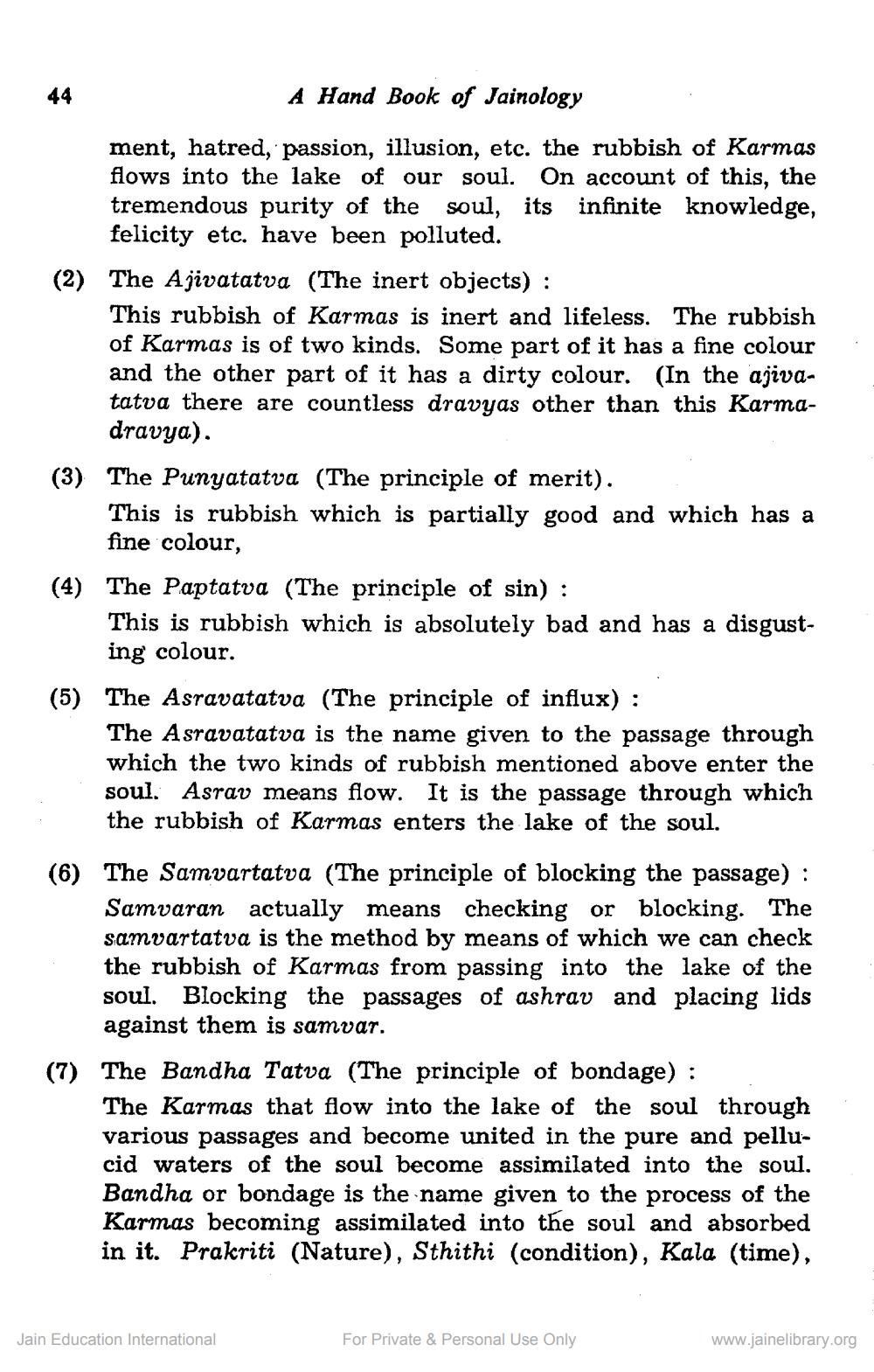________________
4153
44
A Hand Book of Jainology
ment, hatred, passion, illusion, etc. the rubbish of Karmas flows into the lake of our soul. On account of this, the tremendous purity of the soul, its infinite knowledge, felicity etc. have been polluted.
(2) The Ajivatatva (The inert objects) :
This rubbish of Karmas is inert and lifeless. The rubbish of Karmas is of two kinds. Some part of it has a fine colour and the other part of it has a dirty colour. (In the ajivatatva there are countless dravyas other than this Karmadravya).
(3) The Punyatatva (The principle of merit).
This is rubbish which is partially good and which has a fine colour,
(4) The Paptatva (The principle of sin) :
This is rubbish which is absolutely bad and has a disgusting colour.
(5) The Asravatatva (The principle of influx) :
The Asravatatva is the name given to the passage through which the two kinds of rubbish mentioned above enter the soul. Asrav means flow. It is the passage through which the rubbish of Karmas enters the lake of the soul.
(6) The Samvartatva (The principle of blocking the passage) : Samvaran actually means checking or blocking. The samvartatva is the method by means of which we can check the rubbish of Karmas from passing into the lake of the soul. Blocking the passages of ashrav and placing lids against them is samvar.
(7) The Bandha Tatva (The principle of bondage) :
The Karmas that flow into the lake of the soul through various passages and become united in the pure and pellucid waters of the soul become assimilated into the soul. Bandha or bondage is the name given to the process of the Karmas becoming assimilated into the soul and absorbed in it. Prakriti (Nature), Sthithi (condition), Kala (time),
Jain Education International
For Private & Personal Use Only
www.jainelibrary.org




